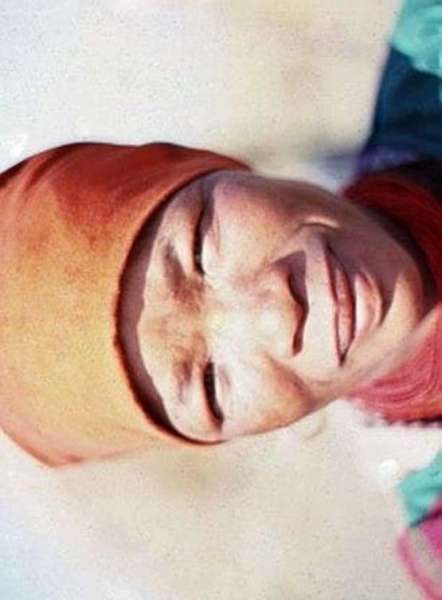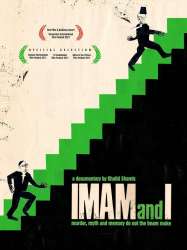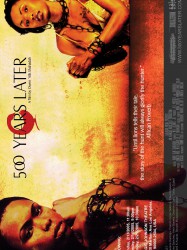N!ai, The Story of a !Kung Woman est un film de genre Documentaire sorti en France le 3 mai 1981
N!ai, The Story of a !Kung Woman (1981)

Si vous aimez ce film, faites-le savoir !
Nǃai, the Story of a ǃKung Woman is a film by ethnographic filmmaker John Marshall.
The film was first broadcast in 1980 as part of the Odyssey series on PBS and is distributed by Documentary Educational Resources. It provides a broad overview of Juǀʼhoan life, both past and present, and an intimate portrait of Nǃai, a Juǀʼhoan woman who in 1978 was in her mid-thirties. Nǃai tells her own story, and in so doing, the story of Juǀʼhoan life over a thirty-year period.
"Before the white people came we did what we wanted," Nǃai recalls, describing the life she remembers as a child: following her mother to pick berries, roots, and nuts as the season changed; the division of giraffe meat; the kinds of rain; her resistance to her marriage to ǀGunda at the age of eight; and her changing feelings about her husband when he becomes a healer. As Nǃai speaks, the film presents scenes from 1950s that show her as a young girl and a young wife.
The uniqueness of Nǃai may lie in its tight integration of ethnography and history. While it portrays the changes in Juǀʼhoan society over thirty years, it never loses sight of the individual, Nǃai. The film is credited with the introduction of the diological structure, whereby both the voices of the filmmaker and the subject are woven together to tell the story. It is also credited as the first ethnographic film to recognize the influence of modernity on the ǃKung people.
Marshall complied the footage of for Nǃai over the course of 27 years. Marshall shot over 353,000 feet of color film during his expeditions into the Nyae-Nyae region. The footage of Nǃai as a young girl, including her wedding ceremonies, was recorded in 1951.
The film contains a scene from the filming of The Gods Must Be Crazy, with the actual, revealing words of the Bushmen involved translated.
Awards:
Cine Golden Eagle
American Film Festival, Blue Ribbon
International FIlm and Television Festival of New York
Grand Prize, Cinema du RjeZ, Paris
Commentaires
Postez un commentaire :
Suggestions de films similaires à N!ai, The Story of a !Kung Woman
Il y a 8952 ayant les mêmes genres cinématographiques, 3658 films qui ont les mêmes thèmes (dont 147 films qui ont les mêmes 2 thèmes que N!ai, The Story of a !Kung Woman), pour avoir au final 70 suggestions de films similaires.Si vous avez aimé N!ai, The Story of a !Kung Woman, vous aimerez sûrement les films similaires suivants :
 , 58minutes
, 58minutesOrigine Etats-Unis
Genres Documentaire
Thèmes Afrique post-coloniale, Le racisme, Documentaire sur la discrimination, Documentaire sur le droit, Documentaire sur une personnalité, Documentaire sur la politique, Politique
Note64%






All Hell Broke Loose (1995)
, 45minutesOrigine Israel
Genres Documentaire
Thèmes Afrique post-coloniale, Religion, Le terrorisme, Documentaire sur le droit, Documentaire sur la guerre, Documentaire historique, Documentaire sur une personnalité, Documentaire sur la politique, Documentaire sur la religion, Documentaire sur le terrorisme, Politique, Religion juive

Corner Store (2010)
, 1h33Origine Etats-Unis
Genres Drame, Documentaire
Thèmes Afrique post-coloniale, Religion, Documentaire sur le monde des affaires, Documentaire sur le droit, Documentaire sur la guerre, Documentaire historique, Documentaire sur une personnalité, Documentaire sur la politique, Documentaire sur la religion, Politique, Religion juive
Note67%





 , 52minutes
, 52minutesOrigine Algerie
Genres Documentaire
Thèmes Afrique post-coloniale, L'immigration, Documentaire sur le droit, Documentaire sur la guerre, Documentaire historique, Documentaire sur une personnalité, Documentaire sur la politique, Politique
En 1939, la fin de la guerre civile espagnole oblige des milliers d’hommes, de femmes et d’enfants à fuir l’Espagne franquiste. En Algérie, l’administration française ouvre des camps pour les accueillir. 70 après, un jeune Algérien enquête sur ces camps. Malgré l’absence d’archives, les traces ont survécu à l’oubli collectif et transparaissent dans l’Algérie d’aujourd’hui.

Origine Etats-Unis
Genres Documentaire
Thèmes Afrique post-coloniale, Le racisme, Documentaire sur la discrimination, Documentaire sur le droit, Documentaire sur une personnalité, Documentaire sur la politique, Politique
In the 1950s South Africans realized that their freedom struggle had to be built in four arenas of action: mass action, underground organization, armed struggle, and international mobilization. Have You Heard From Johannesburg takes viewers inside that last arena, the movement to mobilize worldwide citizen action to isolate the apartheid regime. Inspired by the courage and suffering of South Africa’s people as they fought back against the violence and oppression of racism, foreign solidarity groups, in cooperation with exiled South Africans, took up the anti-apartheid cause. Working against heavy odds, in a climate of apathy or even support for the governments of Hendrik Verwoerd, John Vorster and P.W. Botha, campaigners challenged their governments and powerful corporations in the West to face up to the immorality of their collaboration with apartheid.

The Killing of the Imam (2010)
, 10minutesOrigine Afrique du sud
Genres Documentaire
Thèmes Afrique post-coloniale, Le racisme, Documentaire sur la discrimination, Documentaire sur le droit, Documentaire sur une personnalité, Documentaire sur la politique, Politique
En 1969, l’imam Abdullah Haron fut enfermé et tué en détention au Cap. Leader de communauté, très apprécié, il tentait de faire prendre conscience à ses congénères, peu actifs, de la détresse dans laquelle ils vivaient sous l’apartheid. Durant les années 1960, l’imam Haron est devenu plus actif et a commencé à voyager à l’étranger pour soulever des fonds destinés aux familles pauvres. Mélangeant animation, interviews et archives, ce court-métrage explore les dernières années de la vie de l’imam et sa mort. Le récit est dit par son petit-fils, le réalisateur, à travers les yeux d’un enfant.

Kinshasa Symphony (2010)
, 1h35Origine Allemagne
Genres Documentaire, Musical
Thèmes Afrique post-coloniale, La musique, Documentaire sur la musique, Documentaire sur une personnalité, Lié à la musique classique, Musique
Note75%





Avec 10 millions d’habitants, Kinshasa, capitale de la République démocratique du Congo, est la troisième plus grande ville d’Afrique. Le film montre comment des personnes y résidant ont réussi à construire un des systèmes les plus complexes existant dans le domaine de la coopération humaine : un orchestre symphonique – l'Orchestre symphonique kimbanguiste, jouant Haendel, Verdi, Beethoven. Kinshasa Symphony montre Kinshasa dans toute sa diversité, son rythme, ses couleurs, sa vitalité et son énergie. C’est un film sur le Congo, sur les habitants de Kinshasa et sur la musique.

Running the Sahara (2007)
, 1h42Réalisé par James Moll
Origine Etats-Unis
Genres Documentaire
Thèmes Afrique post-coloniale, Sport, Documentaire sur le sport, Documentaire sur une personnalité
Note70%






Finding Fela (2014)
, 2hRéalisé par Alex Gibney
Origine Etats-Unis
Genres Documentaire, Musical
Thèmes Afrique post-coloniale, La musique, Documentaire sur la musique, Documentaire sur une personnalité, Le jazz, Musique
Note70%





A look at the life and music of Nigerian singer Fela Kuti.

500 Years Later (2005)
, 1h48Réalisé par Owen 'Alik Shahadah
Genres Documentaire
Thèmes Afrique post-coloniale, Esclavagisme, Le racisme, Documentaire sur la discrimination, Documentaire sur le droit, Documentaire historique, Documentaire sur une personnalité, Documentaire sur la politique, Politique
Acteurs Bill Cosby, M. K. Asante, Nelson George
Note68%





The film visits five continents, and over twenty countries while charting the legacy of slavery and identifies a direct, or indirect link to crime, drugs, HIV/AIDS, poor education, inferiority complex, low expectations, poverty, corruption, poor health, and underdevelopment to African people globally.
 Connexion
Connexion